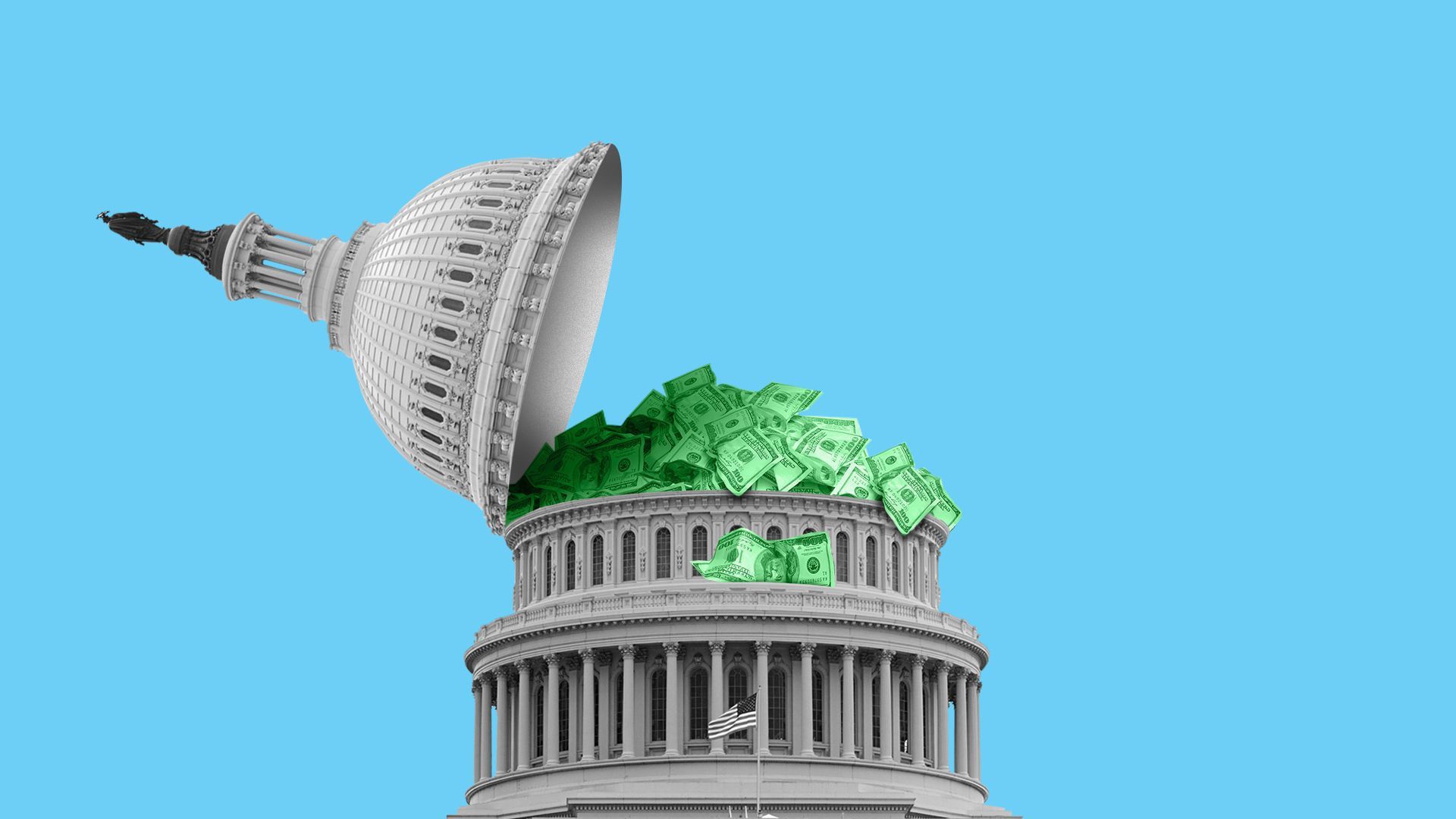Mar 25, 2021 - Economy
Dealmakers turn eyes to D.C.
Add Axios as your preferred source to
see more of our stories on Google.

Illustration: Aïda Amer/Axios
Washington, D.C. is about to take center stage for the deal-making business, as both legislators and regulators are eyeing major changes.
Driving the news: The key issue is taxes, with President Biden expected to push for a corporate rate increase to 28%.
- Some moderate Democrats only want to push the corporate rate to 25%.
- Republicans generally want it to remain at 21%, but they don't really matter unless all that's on the table is 28% and Joe Manchin is opposed.
- Biden plans to unveil his proposal in Pennsylvania next week, Axios' Alayna Treene tells me. His administration will try and have Congress pass his bill the "standard way" over the next few months — with 60 votes in the Senate. If that fails, they'll use the same reconciliation process they relied on for coronavirus relief, which only requires a simple majority to pass.
In terms of carried interest, Biden may step over the loophole and plug it at the same time.
- The Washington Post's Jeff Stein reports that the White House is considering language that would eliminate beneficial treatment for capital gains once those gains top $1 million.
- And as a double-whammy for wealthy dealmakers, it sounds like top individual income rates would also rise.
But wait, there's more: The SEC has opened an investigation into SPACs, with a focus on how banks are managing risk, according to Reuters.
- Biden also this week confirmed he'll nominate Lina Khan to become an FTC commissioner. She's best known in tech circles for a 2017 paper called Amazon's Antitrust Paradox, in which she argues that current antitrust law is antiquated, and must be updated to address potentially monopolistic practices by Big Tech companies.
- This follows Biden's earlier addition of antitrust agitator Tim Wu to the National Economic Council, as a special assistant to the president for tech and competition policy.
The bottom line: Deal math is about to change.
